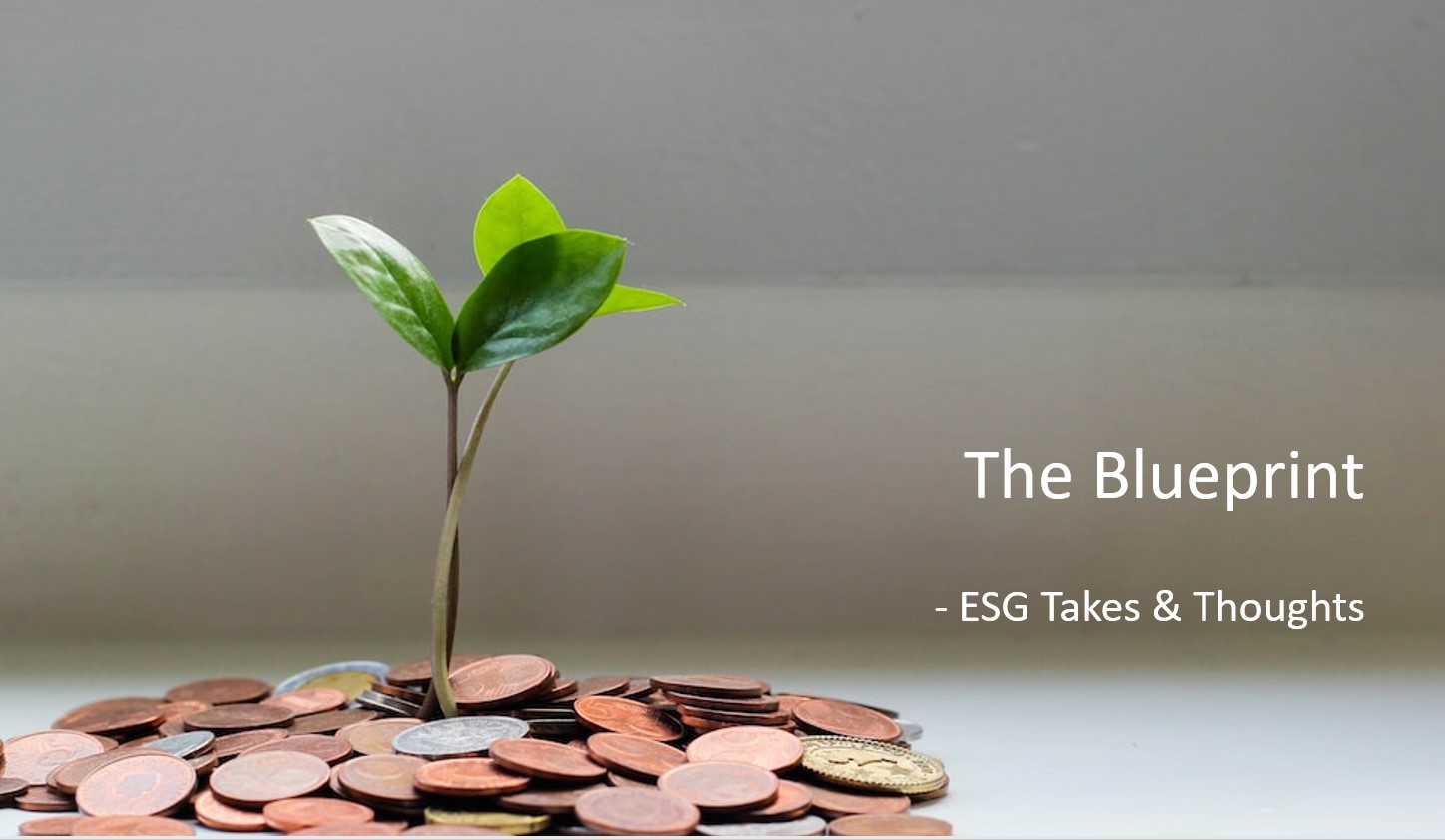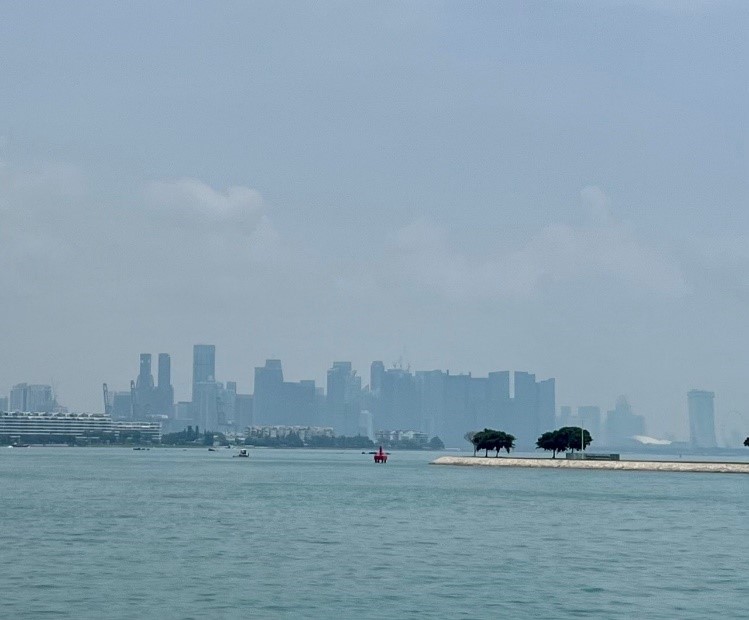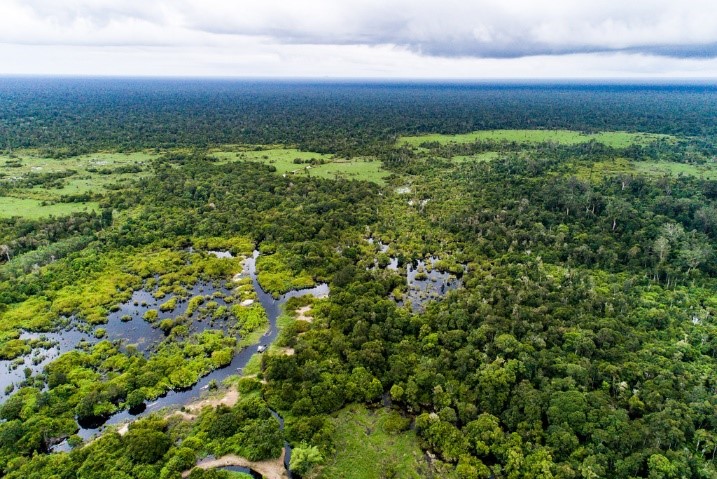
Hazy days in Singapore
Haze is often the result of illegal forests fires and slash-and-burn agriculture in Indonesia. Transboundary haze worsens during dry El Nino periods – which refers to an unusual warming of sea surface temperatures in the eastern Pacific (Straits Times).
 Photo source : Freepik
Photo source : Freepik
Growing demand for commodities (e.g. oil palm and rubber) and food crops incentivise illegal land clearing and burning. Not only does this put Indonesia’s climate commitments at risk, it also has far-reaching consequences on public health and the economies of neighbouring countries.

Hazy skies framing Singapore’s skyline in late September
Photo source : Freepik
Haze also affects biodiversity – smoke and toxic chemicals can cause mortality and hamper the development of caterpillars (Tan et al., 2019). At sea, turbid air diminishes sunlight received by corals, potentially disrupting photosynthetic activity (Jaafar & Loh, 2014). Land clearing and soil run-off can worsen pollution and cause plankton blooms, putting further pressure on marine life.

According to the UNEP, peatlands are mostly found in Asia and store twice as much carbon as all the world’s forests
Photo: CIFOR
Peatlands are lush, waterlogged swamp forests and act as major carbon sinks. Indonesia is home to 36% of the world’s tropical peatlands (Warren et al., 2017). Much of these peatlands have been cleared for agriculture. Drained peatlands are more fire-prone. Aside from slash-and-burn agriculture, unintentional forest fires could also introduce more carbon dioxide and air pollutants into the atmosphere.
Exports of commodities and food also contribute to land use pressures. Singapore imports over 20% of its palm oil from Indonesia (OEC). Local air pollution readings rose to 119 this month, breaking into the unhealthy range for the first time in 4 years (CNA).
Looking forward
In 2020, WEF released a report revealing that over half the world’s GDP is moderately or highly reliant on nature. The benefits of protecting and restoring nature are strengthened by these nature dependencies. Companies need to assess, commit, and transform to halt and reverse nature loss by 2030 (Business for Nature).
At Phillip Capital Management, we place emphasis on managing nature risks and dependencies using PCM ESG Analysis Objective 1 (Managing ESG Risks). Within its operations and business units, companies should identify mitigative actions for identified risks. As outlined above, agriculture operations often involve land clearing, disrupting natural habitats, and causing species decline. Utilising sustainable land management – such as growing on land devoted to agriculture and food production – could help mitigate nature risks. For example, leaving peat swamps intact allows them to act as flood buffers, protecting assets and crops from destruction.
Under the governance analysis of Objective 2 (Mitigating Negative Externalities), we assess how companies ensure sustainable practices within their supply chains. Aside from the agriculture industry, technology and finance corporations can contribute to positive outcomes by strengthening procurement criteria. Companies can aim to procure products sustainably from suppliers that comply with applicable environmental laws.
Important Information
This material is provided by Phillip Capital Management (S) Ltd (“PCM”) for general information only and does not constitute a recommendation, an offer to sell, or a solicitation of any offer to invest in any of the exchange-traded fund (“ETF”) or the unit trust (“Products”) mentioned herein. It does not have any regard to your specific investment objectives, financial situation and any of your particular needs.
The information provided herein may be obtained or compiled from public and/or third party sources that PCM has no reason to believe are unreliable. Any opinion or view herein is an expression of belief of the individual author or the indicated source (as applicable) only. PCM makes no representation or warranty that such information is accurate, complete, verified or should be relied upon as such. The information does not constitute, and should not be used as a substitute for tax, legal or investment advice.
The information herein are not for any person in any jurisdiction or country where such distribution or availability for use would contravene any applicable law or regulation or would subject PCM to any registration or licensing requirement in such jurisdiction or country. The Products is not offered to U.S. Persons. PhillipCapital Group of Companies, including PCM, their affiliates and/or their officers, directors and/or employees may own or have positions in the Products. This advertisement has not been reviewed by the Monetary Authority of Singapore.
